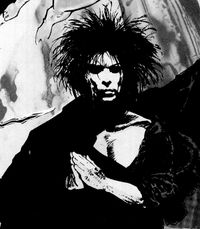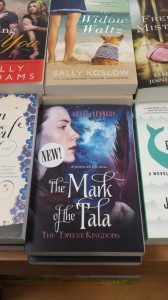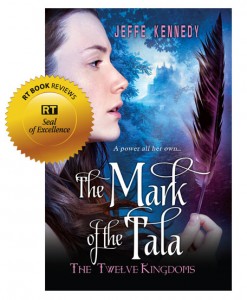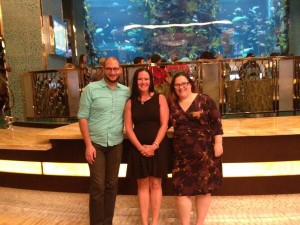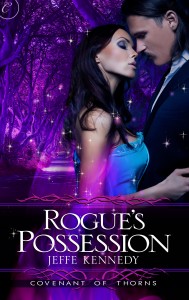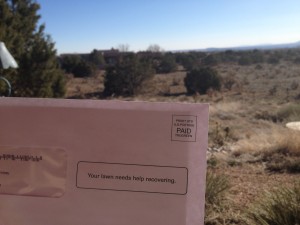 It’s a funny thing, living in the desert. Like getting junk mail that so does not apply.
It’s a funny thing, living in the desert. Like getting junk mail that so does not apply.
So, you all know that I’ve been busily drafting Rogue’s Paradise, the third book in my Covenant of Thorns trilogy. Well, maybe you don’t breathlessly follow my daily doings and so wouldn’t know, but I am. And – I think this isn’t spoilery – there are *ahem* dragons in it. Because, you know, they were in the first and second books. I’m just indicating the trajectory continues is all.
But it’s funny because, as I deal with the ins and outs of dragons and their role in my overall story, I keep remembering this conversation I had a few months back.
I was at a writers conference and, when I arrived at the area where the workshops were being held, I saw Agent Pam talking to this guy. She spotted me walking up and introduced me to the guy. I can’t recall exactly what she said, but it was along the lines of “Jeffe writes fantasy and [Guy] writes some kind of fantasy, too.” And then she ducked away really quick, which should have given me a clue. But I was freshly arrived, bright-eyed and bushy-tailed, feeling generous and friendly, so I made a little joke, something like “oh, one of those, huh, who doesn’t know it exactly what kind of fantasy it might be?”
I mean, come on – I have internet conversations almost every day where we debate if something is epic fantasy or urban fantasy or contemporary fantasy or fantasy romance. It’s not like our stories come pre-pigeonholed.
At any rate, Guy gives me a look (you know, the mansplaining kind) and says to me, “No, I know exactly what kind of fantasy I write. It’s [insert some way-too-specfic term here].” Seriously I can’t remember what he said, because as soon as the words came out of his mouth, I started to glaze over. Then he proceeded to give me his resume, which largely included his “near-misses” along with the books he had written. A near-miss happens when, say, your book makes it all the way to the second meeting of the editorial team at TOR and they ultimately decide to pass. I total “I coulda been a contenda” moment. Agonizing for the author, yes. Not a good way of introducing yourself.
Writers, of course, discuss and commiserate over the near-misses all the time. But they never count for making you more legit or important. (Pro-tip, there.)
Anyway, Guy tells me about a near-miss. Then also tells me how this prestigious role-playing game (which meant nothing to me, since I don’t know that world) wanted him to write a spin-off of book. He, however, refused! “They wanted to me to write about dragons sitting around discussing war,” Guy said, in a disgusted and dismissive tone. “No amount of money would get me to write about a conversation. I write action!”
Okay then.
So, as I write about my dragons – who are, by the way, not sitting around discussing war, for what it’s worth, though there may be other, similar conversations – I keep hearing Guy’s voice. And thinking how he just didn’t get it.
I mean, yes, write action! That’s great stuff. Nothing wrong with writing action. A good writer, however, can make a conversation into a fight scene. Or a love scene. Hell, look at Hemingway’s Hills Like White Elephants or Dorothy Parker’s Here We Are. Conversely, I’ve read tons of fight and battle scenes that I skimmed because they were all about the blow-by-blow and contained no emotional tension.
I think that’s why the conversation with Guy keeps coming back to me. The thing is, while the STORY is key, it’s the writing that makes it come alive. Written well, a conversation adds to the overall tension and climactic build of the plot. Written poorly, the most dramatic fight scene can, well, droop and fail to satisfy.
I’ll leave you with a snippet from the amazing Dorothy Parker’s Here We Are.
“Well, you see, sweetheart,” he said, “we’re not really married yet. I mean. I mean—well, things will be different afterwards. Oh, hell. I mean, we haven’t been married very long.”
“No,” she said.
“Well, we haven’t got much longer to wait now,” he said. “I mean—well, we’ll be in New York in about twenty minutes. Then we can have dinner, and sort of see what we feel like doing. Or I mean. Is there anything special you want to do tonight?”
“What?” she said.
“What I mean to say,” he said, “would you like to go to a show or something?”
“Why, whatever you like,” she said. “I sort of didn’t think people went to theaters and things on their—I mean, I’ve got a couple of letters I simply must write. Don’t let me forget.”
“Oh,” he said. “You’re going to write letters tonight?”
Guy would no doubt disapprove, but something also tells me he wouldn’t get it.
 Spring definitely begins in March here in Santa Fe. I spent a few hours sitting outside reading with my coffee in the sunshine this morning. Lovely!
Spring definitely begins in March here in Santa Fe. I spent a few hours sitting outside reading with my coffee in the sunshine this morning. Lovely!
